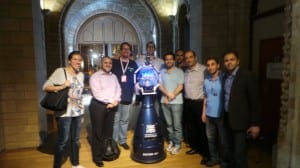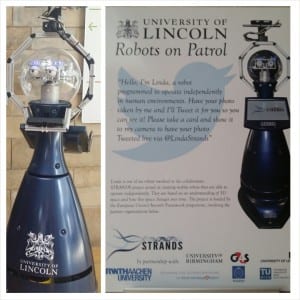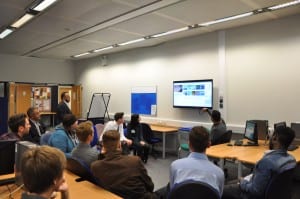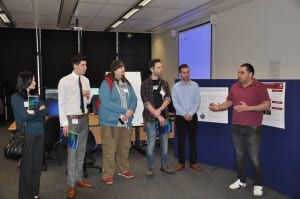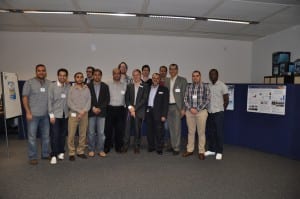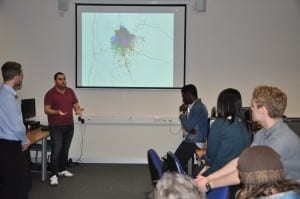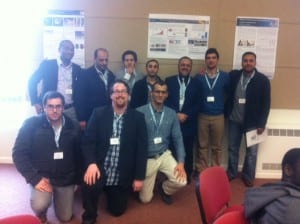The monthly PGRs Research Presentations was held on Wed. 11th June, 2pm, Room MC3108. This session we had the following presentations:
| Title: “Exploring the co-creation of narrative using social technology“. | Our Trip to London (Natural History Museum) | |
|
By: Kwamena Appiah-Kubi |
By: Amr Ahmed |
|
| Abstract: This is the first in a series of studies exploring collaborative creation of narratives by a group of people engaged in a shared experience such as on a tour in a museum, visiting a theme park etc. The group in this and a number of later studies have an existing relationship between them such as being friends, family, class/course mates etc. Some of the themes being investigated are anonymity, privacy and group dynamics as well as tools that can better support/enhance these shared experiences. | Brief on the trip to London, during the Universities Week. http://www.youtube.com/watch?v=sSnSNU7oPJY?rel=0
Photos, and video summary. |
|
